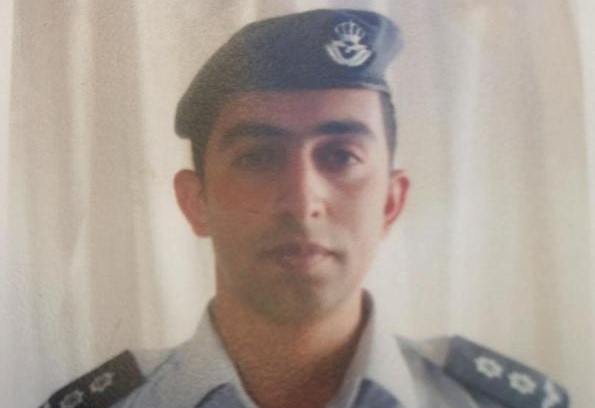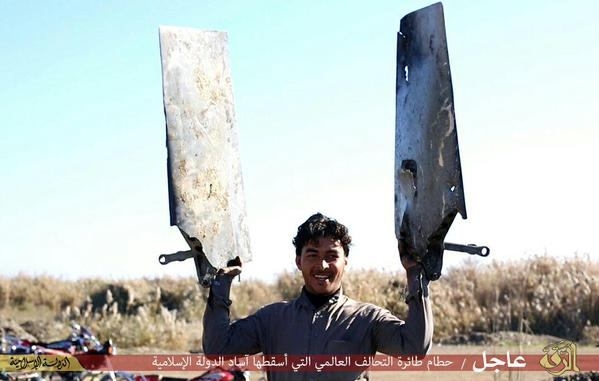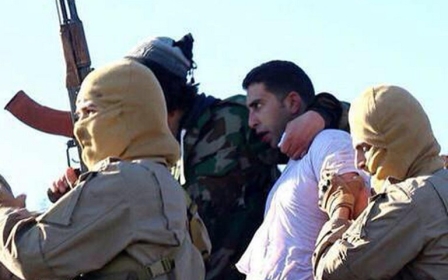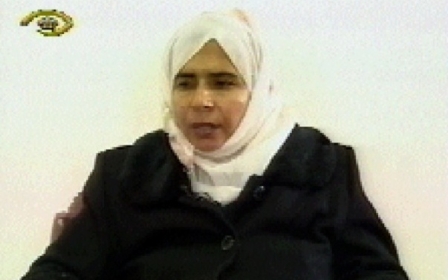Jordan mulls anti-IS coalition exit amid talks over seized pilot

Jordanian officials are engaged in a flurry of indirect negotiations in the hope of securing the release of a fighter pilot captured by Islamic State in northern Syria, amid reports that they could be scaling back their participation in the US-led coalition against the militants.
Muaz Kasasbeh, a 26-year old lieutenant with the Jordanian air force, was engaged in a bombing raid near the eastern town Raqqa, seen as an IS stronghold in Syria, when his plane came down on 24 December.
The Islamic State has claimed they had downed the plane using a heat-seeking missile after it lost altitude.
However, US officials rejected the claim, saying “evidence clearly indicates [IS] did not down the aircraft.”
According to reports from inside Raqqa, the plane was seen flying above the city with smoke billowing out of the back – activists told AFP they believed a technical failure was behind the crash, and that Kasasbeh managed to eject before impact.
After the crash, however, Kasasbeh was taken hostage by IS.
The group has since published pictures of him semi-naked being dragged away from a river, believed to be the Euphrates, which runs through the outskirts of Raqqa.
Jordanian support for coalition wavering
Kasasbeh’s capture, the first time a coalition pilot has been taken hostage, has been followed up by a significant increase in coalition strikes against IS sites.
Some 250 of the group's fighters were killed by coalition airstrikes on Sunday alone, Anadolu Agency reported.
But while the US-led coalition to “degrade and destroy” IS - which includes several Arab states as well as the UK, France and others - has scaled up its bombing raids in the wake of the capture, there were reports on Monday that Jordan could be suspending its participation.
Jordanian officials have told “interested parties” in the coalition that they will not resume their participation in the strikes until after details of the crash become clear, Jordanian news site al-Arab al-Yawm reported.
The paper quoted a source as saying that “a high-level investigative commission has been established within the joint operations room of the coalition to probe what caused the plane to crash or be downed.”
The news comes after reports emerged indicating that IS has released a list of its demands in return for Kasasbeh’s release. The demands are said to include a prisoner exchange and Jordan’s exit from the anti-IS coalition.
After Kasasbeh’s capture, Jordan’s leaders have come under considerable domestic pressure to secure his release – eight prominent MPs have signed an official parliamentary request demanding that the government withdraw from the coalition.
On Sunday, a group of six leftist opposition parties also released a joint statement calling on the government to do more to free the pilot.
Social media users have been using the hashtag #WeAreAllMuaz to show solidarity with the pilot and his family, and to demand his release.
Negotiations ongoing
As Jordan’s leaders mull their place in the coalition, intense negotiations are believed to be taking place behind closed doors to try and secure Kasasbeh’s release.
After Kasasbeh’s seizure, Jordan warned of “grave consequences” should he be harmed by his captors. However, officials have stressed that they plan to pursue a political solution rather than attempting a military rescue.
“Jordan will not resort to military solutions before they exhaust all political ones, because any military action could endanger the life of Kasasbeh,” said Nabil Sharif, former Minister of Information.
Negotiations are ongoing between representatives of IS on one side and members of Iraqi Sunni tribes from Anbar in western Iraq.
Jordan has also appealed to Turkey for help in freeing Kasasbeh, Turkish news site Hurriyet reported on Sunday.
Mass executions
Jordanian attempts to free the hostage come after it was revealed that US counter-terrorism officials backed efforts to free Peter Abdul Rahman Kassig, the aid worker captured by IS in October 2013.
According to the reports, a New York lawyer, with the knowledge of the FBI, negotiated with senior al-Qaeda clerics to try and secure Kassig’s release.
The attempts ultimately failed, with IS claiming Kassig’s beheading in November 2014.
IS has shocked global observers with its tactic of mass executions and videoed beheadings.
The group reportedly executed two medical doctors and four other civilians by firing squad in the centre of the Iraqi city of Mosul on Sunday.
Over the past six months, the group has executed almost 2,000 people, the majority of them civilians, according to the Syrian Observatory for Human Rights.
IS has also killed upwards of 120 of its own fighters for trying to flee the territory, the Syrian human rights monitor reported on Monday.
New MEE newsletter: Jerusalem Dispatch
Sign up to get the latest insights and analysis on Israel-Palestine, alongside Turkey Unpacked and other MEE newsletters
Middle East Eye delivers independent and unrivalled coverage and analysis of the Middle East, North Africa and beyond. To learn more about republishing this content and the associated fees, please fill out this form. More about MEE can be found here.





